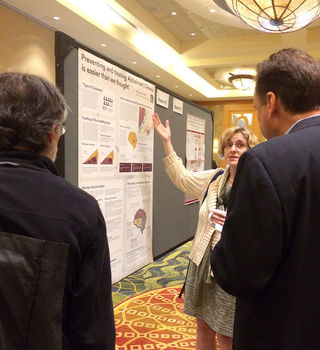Post Covid/Long Covid Treatment
Post-COVID syndrome also known as long COVID refers to symptoms persisting for more than three weeks after the diagnosis of COVID-19. We reviewed the current evidence on post-COVID syndrome, focusing on its clinical manifestations and addressing the challenges for its management in primary healthcare. The incidence of post-COVID syndrome is estimated at 10–35%, while for hospitalized patients it may reach 85%. Fatigue is the most common symptom reported in 17.5–72% of post-COVID cases, followed by residual dyspnea with an incidence ranging from 10–40%. Mental problems, chest pain, and olfactory and gustatory dysfunction may affect up to 26, 22 and 11% of patients, respectively. More than one third of patients with post-COVID syndrome have pre-existing comorbidities, hypertension and diabetes mellitus being the most common.
We Have one of the most comprehensive Post Covid treatment protocols utilizing a combination of HOCATT ozone sauna, RED Light therapy, Hyperbaric oxygen and more. Our treatments address the immune dysregulation and chronic inflammation that occurs following the illness.
HOCATT™
Hyperthermic Ozone & Carbonic
Acid Transdermal Technology

Optimal Wellness & Vitality – Easiest Way to Detox Toxins & Boost Immune System
THE HOCATT™ IS A SINGLE UNIT DEVELOPED FOR A SINGLE PURPOSE — STRATEGIC WELLNESS AND VITALITY. How does it do this? Using a combination of powerful modalities, the HOCATT™ detoxes the body, improves circulation, boosts energy, and strengthens the immune system. WHY IS THE IMMUNE SYSTEM SO IMPORTANT? When it’s working properly, the immune system is nature’s most perfect healing network — it provides the ideal platform for the recovery of any illness or disease. However, the immune system is not invincible! It can be weakened by things that overburden it, like heavy metals and toxins in the water we drink, the air we breathe, and the food we eat. In today’s world we are all steadily exposed to toxins, and most of us remain unaware as they continue to accumulate. Eventually, the pace of incoming toxins may overtake the pace at which your body can eliminate them. When you reach this point, your body has no choice but to store some of these toxins, which it does in your fat cells. A study done in 2005 found that blood samples from newborns contained an average of 287 known toxins1 — if a newborn is exposed to that many toxins, imagine how many you have been exposed to in your LIFE.
How does the HOCATT Work?
The HOCATT™ delivers a combination of technologies perfectly sequenced to give a gentle, but incredibly powerful session that boosts energy, and detoxifies the body down to cellular level. The main technology is Transdermal Ozone, which is generated from pure Oxygen. You can think of Ozone as a Super-Oxygen!
How does the HOCATT DETOX Your Body?
The HOCATT™ is 7x more effective at detoxifying the body and chelating (binding) heavy metals than conventional saunas! While relaxing in the HOCATT™, the ozonated steam covers your skin, flooding your bodywith Super-Oxygen products! These binds to toxins and heavy metals, making it easier for your body to excrete them, and because the HOCATT™ is also a steam sauna chamber, you get to sweat the toxins out too! Not only does the HOCATT™ detox your body, it also modulates the immune system. It also improves blood and lymph circulation, and enhances all organ function — including the production of hormones and enzymes. The HOCATT™ also reduces stress and anxiety, which is very important for immune health. HOCATT™ MODALITIES: Each session is just 30 minutes long, which is another great thing about the HOCATT™ — it allows you to do everything you need to do to achieve optimal wellness and vitality, or to reach a peak state of performance, and it delivers this to you ALL AT THE SAME TIME, for just 30 minutes out of your day! The HOCATT™ has tremendous VALUE: Not only do you receive so many modalities in one session, but because of the way these modalities support and potentiate one
another — you get twice the results! There is nothing else on the market that can do what the HOCATT™ does — and REMEMBER! You don’t have to be sick to benefit: whether you’re ill, an athlete looking to boost performance, or just a healthy person concerned with prevention or looking to get even healthier and detox your system, the HOCATT™ will benefit you.
- Increases circulation
- Modulates the Immune System
- Antioxidant through Hormetic effect
- Increases oxygen level and metabolism (anti-aging)
- Combats and disposes of pathogens and toxins (detox)
- Increases energy level
- Increases serotonin levels (relaxing)
- Activates skin tissue
- Burns up to 600 calories per session
- Improves memory and brain function
- Promotes smooth skin tone
- Improves digestion and bowel health
- Naturally stimulates anti-oxidant enzyme production
- Aids in the relief of chronic health problems



 SHARE
SHARE TWEET
TWEET EMAIL
EMAIL MORE
MORE